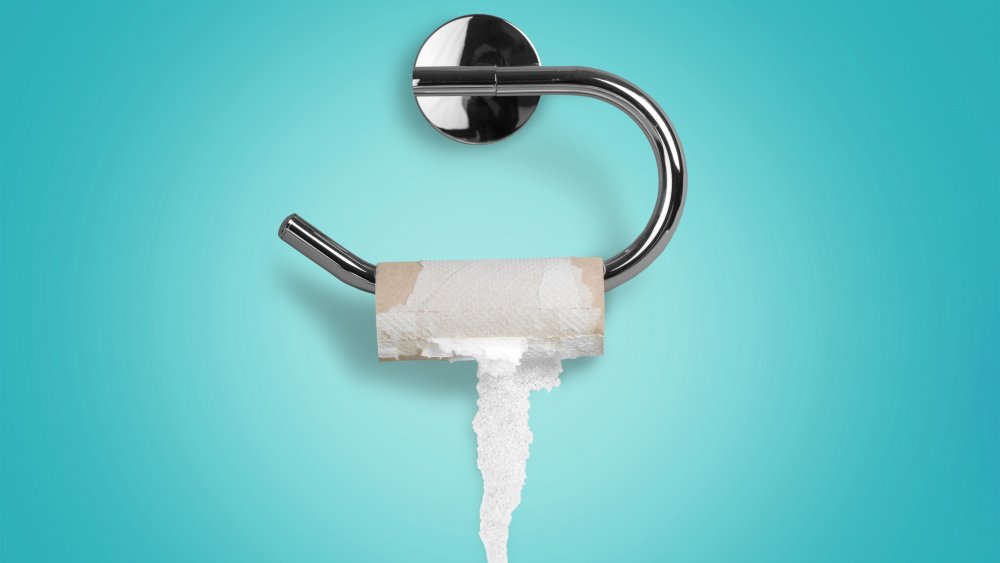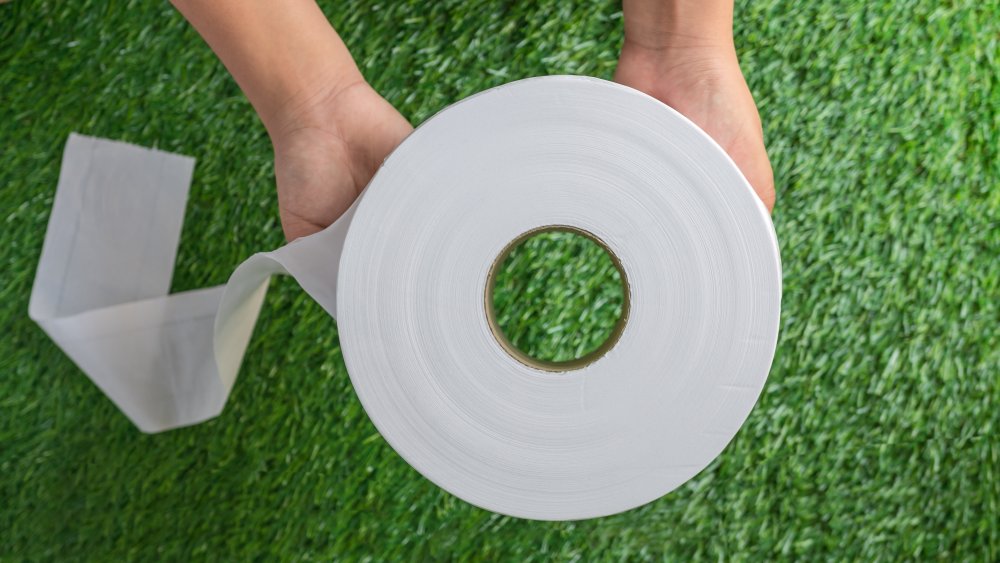What To Do If You Really Run Out Of Toilet Paper
Americans are generally considered fastidious people — sometimes too much so; other countries have cultures where, say, blowing your nose onto the sidewalk is considered de rigeur. But Americans like to smell good, groom, and generally bathe regularly. We like our plumbing and ready access to potable water, hot when we need it and cold when we don't. And we like our toilet paper. At present — March 2020 — that "like" has devolved into something like a fetish, with the item under discussion, so to speak, disappearing from store shelves as soon as it's stocked. So if you've had trouble acquiring and keeping an adequate supply on hand, as it were, you aren't the only one. Somebody out there has more than they'll probably ever need, which is an odd thing to horde, given that coronavirus is basically a respiratory ailment, not intestinal. But never you mind. TP is in short supply at the moment. How to cope? Human beings haven't always had toilet paper. A nifty history of the substance comes to us via Mental Floss, which points out that it wasn't until 1857 in the Land of the Free that toilet paper began to be produced commercially. Joseph Gayetty of New York claimed his product protected against hemorrhoids.
You might want to explore options
Up to that point, the human tush was cleaned in a number of ways, with a number of substances. If you actually run out of the descendants of Mr. Gayetty's invention, perhaps take a look at the lessons of history to get to the bottom of things. Perhaps most famously, people who lacked access to toilet paper, or lacked the wherewithal to buy it, used, first of all, outhouses — separate toilet facilities consisting of a shed, a seat, and a hole in the ground — and cleaned with, for instance, corn cobs. Also printed material that was no longer necessary — famously, catalogs or outdated almanacs might hang in the outbuilding. Paper of all sorts has been utilized — newspapers, especially. But also nature itself has provided some options: grass; leaves (it might be a good time to learn how to identify poison oak, poison ivy, and stinging nettles by sight); even coconut shells. Scraps of cloth can be helpful; the more absorbent, the better. The ancient Romans opted for a stick with a sponge on the end, dipped in salt water ... and it was communal. The ancient Greeks, we're told, used stone, or bits of pottery.
Let the good times roll
Can we recommend any of these things? Not personally. And other cultures, in Europe and Asia and elsewhere, are probably shaking their heads and saying, "We told you to install bidets." For heaven's sake, if you do run out, please don't call 911. Just stick with these common sense rules — find something relatively soft, and something disposable, and make sure you dispose of it in the right place, which usually means in the trash, and not the toilet. Newspaper or old socks or rags would work. Depending on how desperate you are, articles of clothing can be washed. And if it's reasonably sturdy paper or cloth, water can soften these things up. You know how to do the rest. And remember, you're not alone. Today reminds us that if all else fails, you can call for help.


